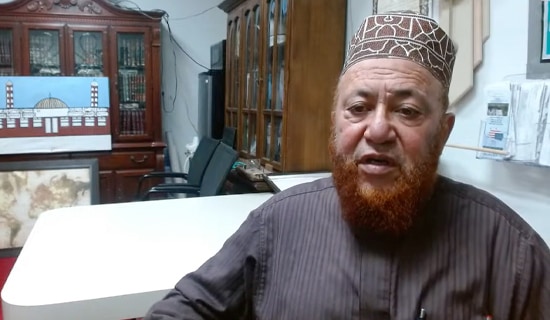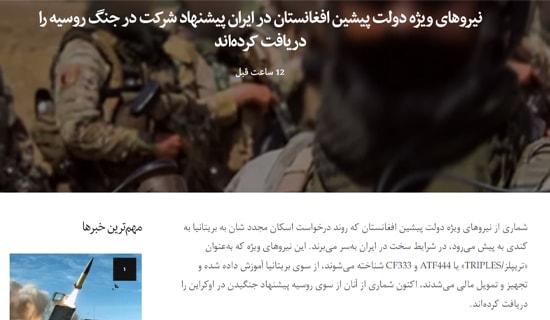The July 10, 2020 decision of Turkish President Recep Tayyip Erdogan, with the backing of the Turkish court, to convert the Hagia Sophia from a museum back into a mosque, sparked joyful responses in the Qatari press. Many articles published in Qatari dailies and on the website of the Qatar-backed International Union of Muslim Scholars (IUMS) welcomed the move and praised Erdogan for it.
Qatari journalists also expressed their approval of the move on social media, and rejected the criticism voiced against it in the West and in Arab countries.[1] Qatari writer Ibtisam Aal Sa'd tweeted on July 19, 2020: "This Muslim president [Erdogan] deserves to be proud of the conversion of a Christian church [Hagia Sophia] back into a Muslim mosque whose history is linked to the great Islamic conquests, despite the barking of the Europeans and the shrieks of the pro-Zionist Arabs.”[2]
The first prayer held at the reopened mosque, on Friday, July 24, 2020, led by Erdogan himself, was also covered very positively in the Qatari press, which celebrated the occasion as "a historic day" that sparked "joy throughout the Muslim world."

July 25, 2020 issue of Qatari daily Al-Raya celebrates first Friday prayer at Hagia Sophia. Top headline reads: "Historic Friday [Sees] Crowd of Worshipers at Hagia Sophia"; bottom headline reads: “Joy Throughout the Islamic World.”
The government daily Al-Watan even stressed that the reopening of the mosque sparked hope that Al-Aqsa would likewise "return to [the] full possession" of the Muslims.
Below are translated excerpts from two of the Qatari articles on the reopening of Hagia Sophia as a mosque.
Qatari Daily Al-Watan: A Historic Day Which Sparks Hope For The Return Of Al-Aqsa To Muslim Hands
An editorial published in the Qatari daily Al-Watan on July 25, one day after the first prayer held at the mosque, was titled "A Historic Day" and stated: "A new leaf has been turned in the annals of history with the reopening of the Hagia Sophia mosque for prayers, 86 years after its conversion into a museum. Yesterday was a historic day for Turkey and the Islamic world, as this unique artistic and architectural monument returned to the fold of the Islamic nation, [giving us] hope that this great nation will regain its full glory.
"Hagia Sophia has returned to us as a mosque filled with faith and Quran recitation, and the call to prayer is heard there once again… [This gives us] hope that the blessed Al-Aqsa mosque will [also] return to our full possession, without obstacles, invasions by extremist settlers, closures, and [measures by] the Israeli occupation preventing [worshipers] from praying there.
"Hagia Sophia, in the Sultanahmet district of Istanbul, served as a mosque for 481 years until it was converted into a museum in 1934. It is one of the most important architectural monuments [built] in the history of the Middle East. Its return to its original [function] as a Muslim mosque revives the spirit of this great nation. The July 10, 2020 decision of [Turkey's] Supreme Administrative Court, overturning the Turkish government decision of November 24, 1934 that converted Hagia Sophia into a museum, is a historic decision that gladdened not only the Turkish people but the entire Islamic nation… The joy of the Islamic nation is boundless, as is the joy of our brothers the Turkish people, as evident from the fact that some 350,000 [worshipers] attended the [first] Friday prayer at the Hagia Sophia mosque, celebrating this glorious historic day on which the yearning of the Islamic nation [to pray at Hagia Sophia] became a reality, praise God.”[3]

Cartoon in Qatari daily celebrates the reopening of the Hagia Sophia mosque as a Turkish victory (Al-Quds Al-Arabi, London, July 13, 2020)
Qatari Columnist: The Reopening Of The Mosque Is A Message To The West That The Age Of Turkish Subservience Has Ended
Majed Al-Ansari, a journalist and a political sociologist at the University of Qatar, devoted his July 13, 2020 column in the daily Al-Sharq to the issue of Hagia Sophia, focusing on the political aspects of Erdogan's decision. He wrote: “Years ago I visited the Hagia Sophia mosque and the mosque in Cordoba, [Spain], on two different trips. Both times I felt the same thing: You can almost feel the corners of the buildings yearning for the prostrations [of the Muslim worshipers]… In both places you can imagine the same moment, at which prayers stopped and the gates were locked, and the effect this had on the hearts of the Muslims. One of these two mosques resumed issuing the call to prayer today. We pray that we will once again hear the call to prayer from the minaret of the Great Mosque of Cordoba [as well]…
"The reconversion [of Hagia Sophia] into a mosque… is the culmination of Turkey's liberation from European dominance… Turkey's gradual transformation into a self-reliant regional power in the present age; the tension that formed [in its relations] with Europe, especially after the attempted coup [in Turkey in 2016], and the refusal of the European countries to accept Turkey’s independent decision-making – [all these] turn the reopening [of the Hagia Sophia mosque] into a political message [directed] outwards, [a message that] that the age of Turkey’s subservience to the West has come to an end…
"The critical responses of governments in the West and the East to this decision of Erdogan's can only be understood as part of [their] opposition to two things: to Turkey attaining full independence in its decision-making, and to its central role in the diplomatic and Islamic arenas. Therefore, we see that the statements [condemning Erdogan's decision] come not only from countries with an Orthodox [Christian] majority, but from all those who benefited from Turkey’s [past] weakness, such as the countries of the European Union and the Arab countries that oppose Erdogan’s Islamic positions…
"The sight of the first prayer [at Hagia Sophia] will cooccur with the anniversary of the failed coup attempt [of 2016], which was supported by many of the countries that now oppose [Erdogan's] decision. [This sight will therefore] be a thorn in the side [of these countries], and we ask Allah that this [situation] persist for a long time."[4]
[1] For criticism of Erdogan's decision by Al-Azhar sheikhs, see MEMRI Special Dispatch No. 8853 – Al-Azhar Sheikhs: Turning Hagia Sophia Back Into A Mosque Is Forbidden By Islam, July 21, 2020.
[2] Twitter.com/Ebtesam777, July 19, 2020.
[3] Al-Watan (Qatar), July 25, 2020.
[4] Al-Sharq (Qatar), July 13, 2020.





